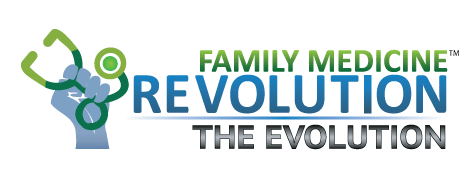I first met TJ when he was newly diagnosed with HIV. Good-looking and soft-spoken, he was an out, young, gay black man who considered himself a leader amongst his peers.
TJ had been infected recently, and knowing that patients diagnosed early are thought to enjoy better outcomes if they start medications quickly, I figured he would do well. We agreed to try Triumeq (abacavir, dolutegravir and lamivudine).
Although that medication is generally well-tolerated, the difficulty of treating his infection soon became apparent. TJ reported strange vibrations in his body, migratory abdominal pain not locatable by exam, lab or imaging. He reported feeling poisoned. Even though Triumeq was unlikely to cause what TJ was experiencing, we switched medications. However, he experienced similar symptoms even on this new, unrelated regimen. I began to suspect that his intolerance was rooted in something other than his HIV drugs.
TJ told me he wanted to be healthy, but he started to miss doses of medications, isolated himself from others, drifted away, and his CD4 count has been drifting downward toward AIDS.
I have many patients like TJ, usually young men who will not or cannot take their medications in a consistent manner. Some do this because of the fear that their medications will broadcast their diagnosis to their families and friends. Others, with no fear of having their diagnosis revealed, struggle regardless and have trouble adhering to a regimen. Whatever the cause, this behavior is a manifestation of stigma — both external and internal. Yet I have other patients from similar backgrounds who succeed in taking their medications perfectly.
I often wonder what is different in those who struggle, I and have recently reflected on the power of the diagnoses we give. The poet Raymond Carver was presumably reflecting on his own diagnosis of terminal lung cancer in the poem, What the Doctor Said, when he penned these lines:
“I jumped up and shook hands with this man who’d just given me
Something no one else on earth had ever given me
I may have even thanked him habit being so strong.”
My own patients often express gratitude for my care. Perhaps for them, too, it is “habit being so strong.” My patients’ lives are irrevocably changed when I utter, no matter how gently or empathetically, “You have HIV.”
The act of giving a diagnosis is an aggressive one. To diagnose is to reach into the most intimate parts of a patient’s life; shake them up; and create a new, unfamiliar order of one’s old world. We tell patients what they can eat, impose a schedule of medications, submit their bodies to procedures, state how much they must exercise or whether they can travel on a plane. Like a Cassandra, we even portend what future suffering they may look forward to, whether it is from HIV, cancer, diabetes or gout. A physician does these things in duty to his or her patient’s health. But what other commitments come with this one?
Paul Kalanithi, M.D., a neurosurgeon with terminal lung cancer, reflected in his memoir, When Breath Becomes Air:
“The physician’s duty is not to stave off death or return patients to their old lives, but to take into our arms a patient and family whose lives have disintegrated and work until they can stand back up and face, and make sense of, their own existence.”
Understanding a patient’s values and, perhaps, helping a patient to understand his or her values begin the work of forming a new identity that incorporates living with a serious illness.
Physicians may be prone to assuming that the singular importance of health is a shared value because our profession equates health with life. In my own carefully choreographed arrangement of work, childcare, running schedule, bills, chores, relationships and social gatherings, I often wonder where I would fit in an insulin sliding scale. Because I know my own existence and identity equates to more than just health, how does a serious illness shake the identity of anyone else?
Whether it is through a structured process such as motivational interviewing or simply genuine curiosity about what is important to our patients, physicians need to go there. It is the foundation of true shared decision-making and, hopefully, the understanding that living life can include a serious illness.
TJ, after a long absence, will be returning to clinic in the coming weeks. I hope that his return means he has come to a new acceptance about his diagnosis and will have success in living with his HIV. In any case, he and I will have a lot to talk about.
Brent Sugimoto, M.D., M.P.H., practices family medicine in a diverse urban practice with a focus on patients living with HIV at Kaiser Permanente in Oakland, Calif.
This blog entry was originally posted on AAFP Fresh Perspectives.
